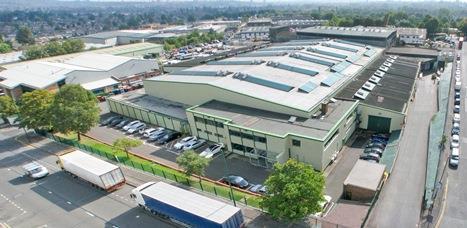
New research reveals that, despite concerns about the economy, more companies intend to expand their warehousing than reduce it in the next two years.
A survey by the UK Warehousing Association (UKWA) and property group CBRE found that a fifth of logistics occupiers planned to increase their warehouse portfolio while only 10% planned to decrease it. A further 47% expected their portfolio to remain stable.
This comes at a time of economic uncertainty, which two-thirds of the occupiers saw as a key challenge, followed by labour shortages and tighter regulation. There was also little optimism about Brexit, which was seen as a challenge by 50% of occupiers and as an opportunity by only 11%.
Proximity to motorways and labour availability were the main drivers in occupiers’ location strategies, cited by 21% and 12% respectively. This was higher than a number of other factors including real estate and labour costs.
However, when it came to selecting an individual building within the location lease options, real estate costs and the quality of the local infrastructure were seen as the most important factors. Security provision, sufficient car parking and sufficient office space were seen as the most attractive features in a warehouse. Shorter leases of under 10 years in length were favoured by most occupiers.
There was scepticism about the impact that certain new technologies would have on logistics in the future. For example, 57% of the survey did not think multi-storey warehousing was viable in the UK and 71% of occupiers thought it was unviable for their own businesses.
Occupiers were asked whether electric vehicles, warehouse robotics or driverless HGVs would have the most impact in the next three years. Half thought it would be electric vehicles, 42% thought it would be warehouse robotics while 8% thought it would be the driverless HGVs.














